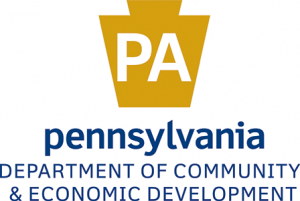Jack Phillips
DDAP Announces Webinar: Value of Reporting to Multiple Payers Simultaneously
ABC’s of Reporting: Value of Reporting to Multiple Payers Simultaneously | Wednesday, April 22, 2020 – 2:00 pm
In this valuable learning session, DDAP will show you how all of the outcome measure requirements of major reimbursement models overlap with one another and how you can take advantage of this to maximize reimbursement. They will discuss how to reduce burden to staff who are responsible for capturing the data, and also discuss tools for how to adapt your reporting as the behavioral health reimbursement process evolves.
Comment Deadline Today for Main Street Loan Program for Businesses with 500+ Employees
The Federal Reserve is requesting comments on the Main Street Loan Program by the end of business today. The comment portal is open until tonight, April 16, on the Federal Reserve website. The Main Street Loan Program provides support for businesses and nonprofits. This is an opportunity for RCPA members with over 500 employees to advocate for assistance.
Talking Points for Comments:
As the Treasury Department works to create a program as directed under the CARES Act section 4003(c)(3)(D), to provide financing to banks and other lenders to make loans to nonprofits and other mid-size business of between 500–10,000 employees, we request that the program:
- Include a 0.50% interest rate (50 basis points) for 501(c)(3) charitable nonprofits at a 5-year amortization;
- Provide priority to 501(c)(3) charitable nonprofits responding to COVID-19 relief efforts;
- Payments shall not be due until two years after a direct loan is made;
- Employee retention provisions should begin on the date that loan funding is received by the borrower; and
- In implementing any workforce restoration and retention provisions, “workforce” should be defined as full-time employees or full-time equivalents.
Many nonprofits employ more than 500 employees and have not been able to access the Paycheck Protection Program, which contains loan forgiveness provisions that are critical to these organizations, and necessary to help ensure they will be able to continue to provide services during the crisis and assist with our nation’s recovery efforts when the crisis is over.
Charitable nonprofits are the third largest employer in our nation’s economy and are valued problem solvers. The recommendations above will help to keep these organizations financially strong and allow them to continue to meet the immediate needs of their communities, while planning for the future when many of their services will be needed most. Nonprofit organizations are our country’s only institutions solely focused on making communities stronger. In the toughest times, we do the toughest work. When it’s time to restore and repair our wellbeing, these community-based institutions need to be equipped to do that as well and their unique needs should not be overlooked.
Question, please contact Jack Phillips.
Webinar and Telemedicine Grant Opportunity Announcement
Wolf Administration Announces Loan Deferrals for Businesses Impacted by COVID-19
FOR IMMEDIATE RELEASE
April 15, 2020
Harrisburg, PA – Today, Department of Community and Economic Development (DCED) Secretary Dennis Davin announced the forbearance of loans administered by DCED.
“This pandemic has presented new and unforeseen challenges to Pennsylvania’s businesses, and the Wolf Administration has been committed to supporting our business community to the fullest extent every step of the way,” said Sec. Davin. “This extended deferral will help ease the burden on small businesses and enable them to focus and prioritize their efforts as we work to mitigate the spread of COVID-19 in the commonwealth.”
Next week, Governor Tom Wolf and Sec. Davin will request loan deferrals for all borrowers with the Ben Franklin Technology Development Authority, the Commonwealth Financing Authority (excluding PENNWORKS program loans), the Pennsylvania Industrial Development Authority, and the Pennsylvania Minority Business Development Authority.
In March, DCED took the emergency executive step of halting April payments, late fees, and accruing interest for these loans. This additional forbearance will apply to May and June payments to include no accrual of interest or fees. Automatic payments will be halted and borrowers paying by check will not be required to submit payment until the scheduled July payment. As a result of the forbearance, the maturity of the loans will be extended for three months.
Resources and information for businesses is regularly posted to http://dced.pa.gov/resources. The U.S. Small Business Administration, in addition to local funding partners, may also be a source of assistance for affected businesses.
Businesses seeking further guidance and clarification from DCED can contact its customer service resource account at [email protected]. For the most up-to-date information on COVID-19, Pennsylvanians should follow www.governor.pa.gov and www.doh.pa.gov.
MEDIA CONTACT: Casey Smith, [email protected]
###
Health Secretary Signs Order Providing Worker Safety Measures to Combat COVID-19
Wolf Administration Provides Relief for Taxpayers Affected by COVID-19 Pandemic
Human Services Announces CHIP to Maintain Enrollment for Families During COVID-19 Crisis
US Centers For Medicare & Medicaid Services: CMS NEWS ALERT
April 14, 2020
Here is a summary of recent Centers for Medicare & Medicaid Services (CMS) actions taken in response to the COVID-19 virus, as part of the ongoing White House Task Force efforts. To keep up with the important work the Task Force is doing in response to COVID-19, click here www.coronavirus.gov. For information specific to CMS, please visit the CMS News Room and Current Emergencies Website. CMS updates these resources on an ongoing basis throughout the day; the information below is current as of April 14, 2020 at 10:00 a.m.
Postponement of 2019 Benefit Year HHS-operated Risk Adjustment Data Validation
To facilitate the nation’s response to COVID-19, CMS is announcing the postponement of the 2019 benefit year HHS Risk Adjustment Data Validation (HHS-RADV) process. This action will allow individual and small group health insurance issuers and providers to focus on the health and safety threats currently faced by enrollees, participants, and other impacted individuals due to the COVID-19 pandemic. CMS intends to provide future guidance in the summer of 2020 on the updated timeline for 2019 benefit year HHS-RADV activities that are planned to begin in 2021. CMS previously announced a similar suspension of the Medicare Advantage RADV program.
Updated Medicaid & CHIP FAQs on Enhanced Federal Funding, Recent Congressional Action
CMS released additional guidance to states on the Families First Coronavirus Response Act and the Coronavirus Aid, Relief, and Economic Security (CARES). The Frequently Asked Questions (FAQs) address enhanced federal Medicaid funding and other topics during the COVID-19 national emergency.
CMS Approves Additional State Medicaid Waivers and Amendments to Give States Flexibility to Address Coronavirus Pandemic
CMS has approved 50 emergency waivers, 28 state amendments, 9 COVID-related Medicaid Disaster Amendments and one CHIP COVID-related Disaster Amendment in record time. States are using a toolkit CMS developed to expedite the application and approval of Medicaid state waivers and State Plan Amendments.
CMS continues to deliver urgent regulatory relief to ensure the State can quickly and effectively care for their most vulnerable citizens. CMS approved a COVID-related Medicaid Disaster Amendment that brings relief to Alabama. These approvals help to ensure that states have the tools they need to combat COVID-19 through a wide variety of state plan flexibilities. CMS continues to authorize amendments to ensure emergency flexibilities in programs that care for the elderly and people with disabilities, including most recently in Arkansas. These approved flexibilities support President Trump’s commitment to a COVID-19 response that is locally executed, state managed, and federally supported.
- Medicaid State Plan Amendments
- Section 1135 Waivers
- 1915(c) Appendix K Waivers
- CHIP State Plan Amendments
2019 Novel Coronavirus (COVID-19) Long-Term Care Facility Transfer Scenarios
CMS is providing supplemental information for transferring or discharging residents between skilled nursing facilities and/or nursing facilities based on COVID-19 status (i.e., positive, negative, unknown/under observation). In general, if two or more certified long-term care facilities want to transfer or discharge residents between themselves for the purposes of cohorting, they do not need any additional approval to do so. However, if a certified long-term care facility would like to transfer or discharge residents to a non-certified location for the purposes of cohorting, they need approval from the State Survey Agency.















